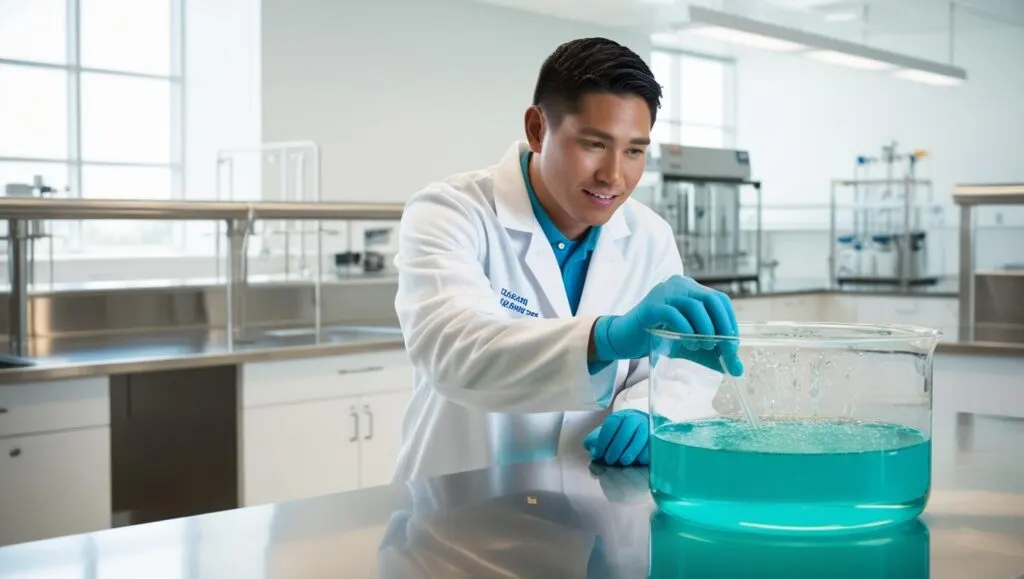A laboratory water bath is an essential piece of equipment in scientific and industrial settings. Used to maintain a consistent temperature for various applications, these devices are indispensable in fields such as chemistry, microbiology, biotechnology, and more. Whether you’re conducting experiments in a laboratory or working on industrial processes, selecting the right water bath is critical to achieving accurate results.
Choosing the ideal laboratory water bath depends on several factors including the heating method, temperature control features, and agitation requirements. This guide provides detailed information about the types of water baths available, key specifications, and considerations to make when choosing the right model for your needs.
1. Understanding the Different Types of Laboratory Water Baths
1.1 General-Purpose Water Baths
General-purpose water baths are versatile models designed for a wide range of applications. They are typically used for heating reagents, incubating cell cultures, and thawing frozen samples. These laboratory water baths are best suited for laboratories that don’t need precise temperature control.
1.2 Circulating Water Baths
Circulating water baths feature an integrated pump that keeps water moving within the chamber, ensuring even temperature distribution. This makes them ideal for sensitive experiments that demand precision, such as enzyme assays or calibration processes.
Key Benefits of Circulating Water Baths:
- Provides uniform temperature distribution, ensuring accuracy.
- Excellent for precise applications.
- Some models can function as external circulators for heating other equipment.
1.3 Shaking Water Baths
Shaking water baths combine temperature control with mechanical agitation, which continuously stirs the water to keep samples evenly mixed. These baths are essential in fields like microbiology, where constant mixing is crucial for reaction efficiency.
Key Benefits of Shaking Water Baths:
- Prevents sedimentation of samples.
- Enhances reaction rates by promoting better mixing.
- Ideal for bacterial cultures and solubility studies.
1.4 Circulating vs. General Water Baths
When choosing between circulating and general water baths, consider the precision required for your application. Circulating models are better for tasks requiring high temperature accuracy, while general-purpose models offer a more affordable solution for less demanding tasks.
| Feature | Circulating Water Bath | General Water Bath |
| Temperature Uniformity | High | Moderate |
| Water Movement | Continuous | Static |
| Applications | Sensitive experiments | Basic heating tasks |
2. Key Features and Specifications to Consider
2.1 Temperature Range and Control
Different laboratory water baths offer varying temperature ranges. Some may reach up to 100°C, while specialized models can exceed this using oils instead of water. If you need precise temperature regulation, look for models with digital temperature controls for accurate settings.
2.2 Temperature Uniformity and Stability
For applications requiring a stable environment, such as those in biotechnology, a circulating water bath is highly recommended. These models ensure uniform temperature (±0.1°C), unlike non-circulating models that can experience temperature fluctuations.
2.3 Agitation in General Water Baths
Some general water baths come equipped with agitation features that help maintain temperature consistency. These baths provide gentle mixing of the water without the need for full circulation.
Advantages of Agitation:
- More even temperature distribution.
- Helps reduce fluctuations in water temperature.
- Suitable for tasks that require moderate mixing.
2.4 Capacity and Chamber Size
Consider the volume of the samples you’ll be working with when selecting your laboratory water bath. Smaller benchtop models are suitable for small experiments, while larger models are available for higher-capacity tasks.
2.5 Lid and Cover Options
Lid options such as gable lids help reduce evaporation and maintain a stable temperature. Hinged covers offer easy access, while flat lids are ideal for shallow baths with minimal evaporation concerns.
2.6 Safety Features
Safety is crucial when selecting a laboratory water bath. Look for features like over-temperature protection, low water level alarms, and programmable temperature settings to prevent overheating and ensure repeatable results.
3. Applications of Laboratory Water Baths
3.1 Common Uses in Various Fields
- Biotechnology & Microbiology: Incubation of bacterial cultures and enzyme reactions.
- Chemical Laboratories: Dissolving solids and maintaining consistent reaction temperatures.
- Pharmaceutical Research: Stability testing and dissolution studies.
- Clinical & Medical Labs: Warming reagents and preparing blood samples.
3.2 How to Choose the Right Water Bath for Your Application
- For precise temperature control: Opt for a circulating water bath.
- For moderate agitation: Consider a general water bath with agitation.
- For continuous mixing: Choose a shaking water bath.
- For a more budget-friendly option: A general water bath may be sufficient if temperature uniformity is not critical.
4. Accessories and Additional Options
To further optimize your laboratory water bath, consider adding accessories such as:
- Racks and Inserts: Securely hold your samples during heating.
- External Circulators: Useful for heating external equipment.
- Digital Controllers: For precise temperature programming and automation.
5. Conclusion: Making the Right Choice
The right laboratory water bath depends on your specific needs, from the level of temperature control to whether agitation is required. Whether you’re looking for a circulating water bath for precision or a general water bath for cost-effective heating, ensure that the model fits your laboratory’s needs.
At Apex Scientific, we offer a wide selection of water baths from Jeiotech and Being International tailored to meet the needs of laboratories across South Africa. For expert guidance and product recommendations, visit our product catalog or contact us today. Explore Our Range of Water Baths




